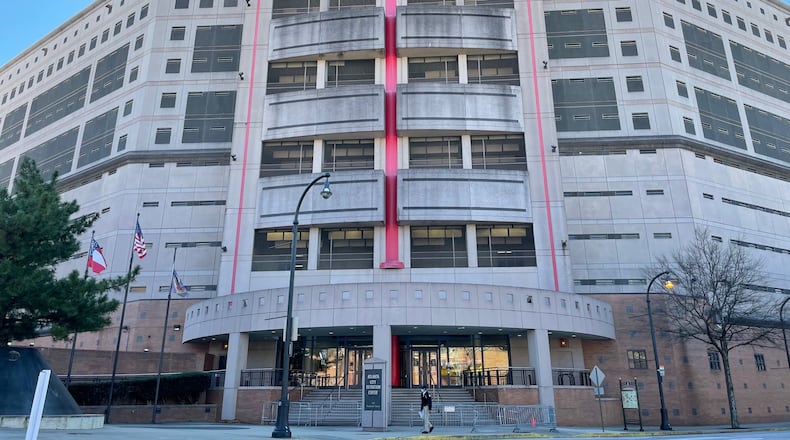Dueling proposals involving Atlanta’s jail were introduced at Monday’s City Council meeting. One would close the 1,300-bed facility within 15 months. The other would have city and Fulton County officials discuss the possibility of selling the jail to the county to help ease overcrowding.
The first piece of legislation, sponsored by Councilmembers Amir Farokhi and Carla Smith on behalf of Atlanta Mayor Keisha Lance Bottoms’ administration, is consistent with the mayor’s attempts to raise and repurpose the city-owned property as a Center for Equity.
A second resolution — sponsored by Councilmen Michael Julian Bond, Howard Shook, J. P. Matzigkeit and Dustin Hillis — would create a joint Atlanta-Fulton County task force to develop a plan for the detention center. It leaves open the possibility for the 471,000 square-foot facility to continue housing inmates.
The two proposals reflect the disparate views of law enforcement and political leaders amid a sharp spike in crime during 2020, and following the civil unrest in Atlanta and other U.S. cities over police brutality.
Last year, a task force assembled by Bottoms to reimagine the city’s jail recommended demolishing the facility and replacing with a Center for Equity. Social activists support the mayor’s plan.
But Bottoms approach to crime, along with her plan to close the jail, has been criticized in areas such as Buckhead, which includes Matzigkeit and Shook’s council districts. In a December press release, Shook criticized Bottoms’ administration for a lack of leadership on crime, days after a 7-year-old girl was shot and killed outside a Buckhead mall.
Bond said that he drafted the legislation to create the task force after touring Fulton County’s Rice Street facility last week, and witnessing substandard conditions. He said circumstances have changed since Bottoms’ committed to closing the city’s facility.
“This goes back to a time when the county and city worked cooperatively to resolve their mutual issues,” Bond said of the legislation he sponsored.
A spokesman for Bottoms said that only the mayor has the authority under the city charter to negotiate with other governments.
“The Administration is already engaged with the County Manager’s Office on coordinating programs, facilities and funding aligned with the Mayor’s Justice Reforms Plan, which was developed with the input of many community stakeholders including City Council Members, County Staff, and County Commissioners,” the spokesman said. “Several meetings between the Administration and County have already occurred and both parties are working through details to be shared for consideration by City Council at the appropriate time.”
This past summer, the city rejected overtures from the county to use Atlanta’s detention facility when the county sheriff’s office was bracing for a COVID-19 outbreak among the tightly packed inmate population at Rice Street.
“There was no willingness to have that conversation around it,” Fulton County Commissioner Bob Ellis said.
Then in January, four days after taking the oath of office, Fulton County Sheriff Patrick Labat revived an old plan for the county to purchase the city’s detention center. Labat said the purchase was central to his overall effort to keep the community safe.
Ellis and at least one other county commissioner said on Monday that they weren’t aware of any proposal to form a city-county task force.
“I don’t know what the prospect of that logjam being broken and having a serious conversation would be,” Ellis said.
Keep Reading
The Latest
Featured



